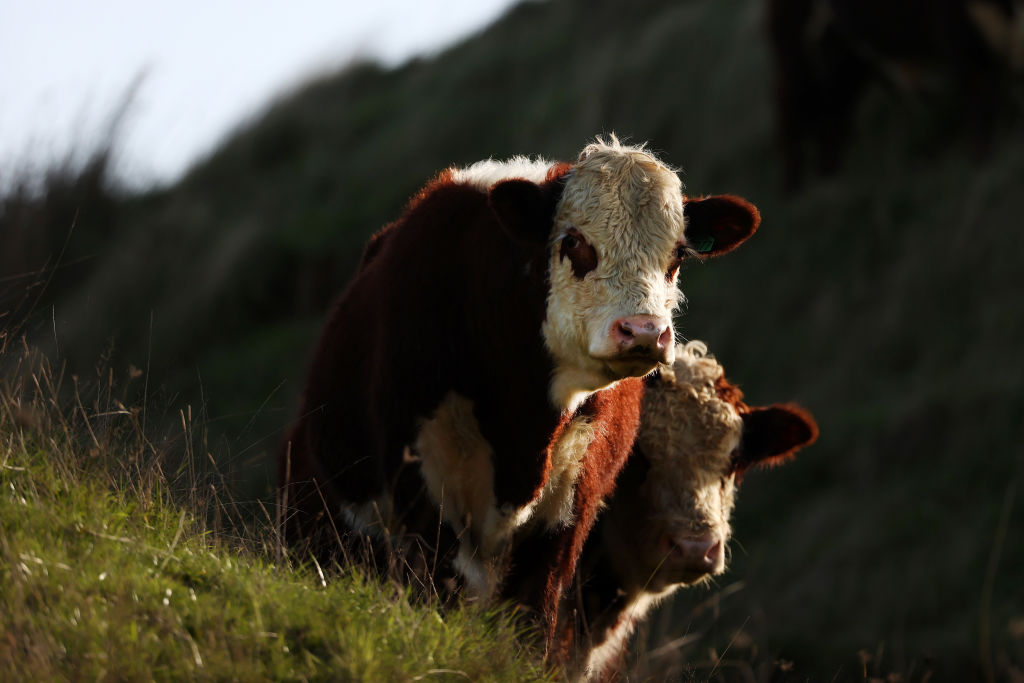Fund crackdown or farmers will continue to pollute UK rivers, think tank warns government

The government needs to provide regulators with the funds to stamp out farms polluting British rivers with slurry leaks, a leading environmental think tank has argued.
Green Alliance told City A.M. the Environment Agency lacks the resources to inspect farms and reduce the amount of slurry pouring into rivers – an essential challenge in combatting poor water quality.
Lydia Collas, policy analyst, said: “Farms are regularly and illegally polluting our rivers. We need the Environment Agency to be suitably funded to carry out regular checks and issue penalties where appropriate.
“As it is, farms can expect to be inspected once every 263 years making it more economical to continue letting slurry slide off into our rivers than to invest in proper slurry management.”
Slurry is a mixture of water and cow manure, which farmers spread over their land as a natural fertiliser, providing crops with essential nutrients.
Excess slurry is expected to be stored securely, but run-off slurry can leak into fields.
There are also reports of farmers dumping slurry into bodies of water, known as ‘slurry spreading’.
Slurry in water exacerbates eutrophication, which is caused when water is overly-enriched with fertiliser nutrients, causing excessive algae in rivers.
Algae growth can block out light for other organisms in the river, while also pumping the river with CO2 – effectively acidifying it for fish and plants, eroding nature from bodies of water.
Under legislation, fixed penalties of between £100-300 can be issued for slurry spreading, with variable money penalties for more severe offences – including a £25,000 penalty issued last year to a farmer in Frome, Somerset, for slurry spreading in the river, killing over 120 fish.
However, campaign group Wild Fish has reported that in 2018-19 – the last pre-pandemic window – the Environment Agency visited only 403 of the UK’s 106,000 farms to check for activities and practices that could lead to water pollution.
This meant farm inspections were happening at a rate of one visit every 263 years.
Meanwhile, no penalties were issued for 243 violations between 2018 and 2021.
Such meagre numbers come amid vast budget cuts at the Environmental Agency, with the government more than halving its environmental protection budget over the course of a decade from £170m in 2009-10 to £76m in 2019-20.
The government launched the Slurry Infrastructure Fund last year, offering up to £250,000 grants to improve storage facilities – with £13.1m allocated in the first round to 374 farmers.
This follows estimates from the Department for Environment Food and Rural Affairs (DEFRA) that half the slurry stores in England are not fit for purpose, causing farmers issues dealing with excess slurry.
NFU: Farmers want to tackle slurry problems
Alastair Heinrich, environment adviser for air and water quality at the National Farmers Union, told City A.M. the industry was aware of the challenges it faces.
He said: “Farmers and growers care about the water quality in rivers and other watercourses and are constantly looking at what they need to do to make improvements.”
The NFU expert argued that while much of the focus is put on water companies and agriculture, run-off from roads, private sewage networks and waste from housing septic tanks and pipes were also contributing to poor water quality.
As for solutions, he revealed the industry was looking at practical measures to ease slurry waste such as deals between farms, and also changing the diet of cows to make the composition of manure and slurry less environmentally challenging.
“One of the things we’ve looked at is where there’s a potential for arable operations, with proximity to livestock or dairy farms, to actually take that slurry and use it on their farm. Rather than trying to make a net reduction in the volume of slurry, we’re looking at how you manage what’s in slurry, reducing the amount of phosphates in the nutrients,” Heinrich explained.
He also called for more funding to be provided to slurry grants and said the NFU was happy to work with the government to cut down slurry waste.
He said: “We would like to see more funding through the Slurry Infrastructure Grant, because there are only two rounds coming through that we’re aware of currently. We’d like to see the DEFRA grant extended to further rounds to basically ensure that all eligible farmers within that scope have the opportunity to apply to help themselves go above and beyond regulatory baselines.”
Earlier this month, environment secretary Therese Coffey unveiled the Plan for Water, which included plans to expand eligibility for farming schemes to 70 per cent of farmland from the current 34 per cent level.
It also includes £34m of funding through the Slurry Infrastructure Grant for new and expanded covered slurry stores in the highest priority areas of England.
When approached for comment, a DEFRA spokesperson said: “We are supporting farmers to improve their slurry management practices, with £34m available this year to help livestock farms upgrade their slurry stores and further grants to follow.
“We are funding more Environment Agency inspectors to ensure farmers meet their obligations and have invested in our Catchment Sensitive Farming programme to give free farm advice to help improve water quality.”